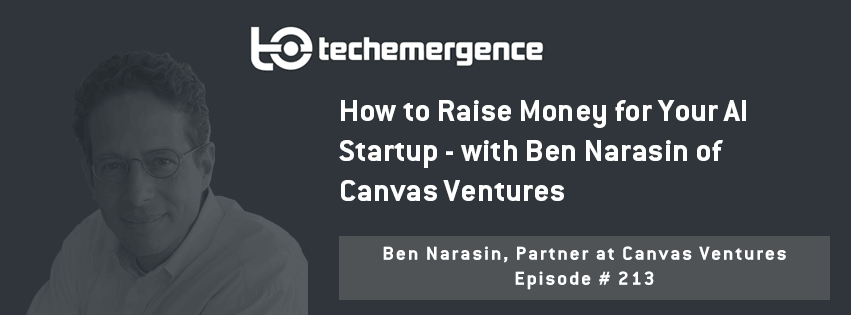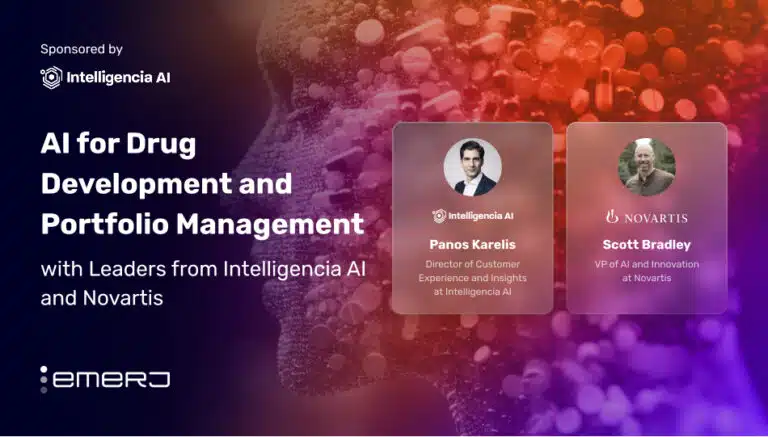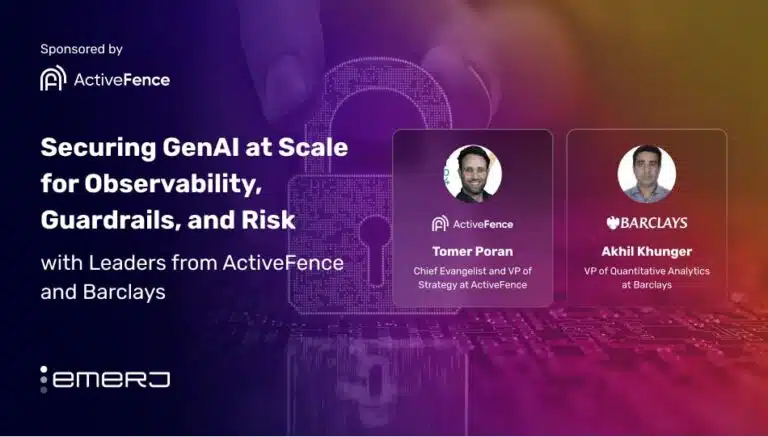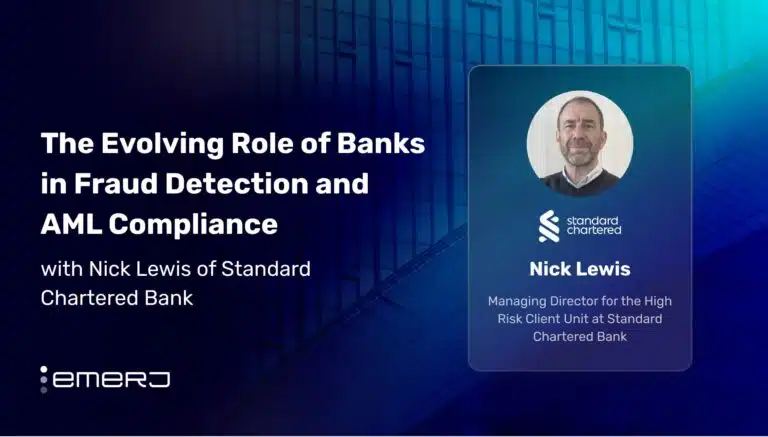Episode Summary: In this episode, recorded live at Canvas Ventures in Portola Valley, I speak with Ben Narasin, a general partner with Canvas and an avid venture investor in AI and ML companies. Ben doesn’t look to invest in AI; instead, he looks for solid companies in which to invest, a subtle but important difference in a startup world that is increasingly caught up in the explosion of AI and ML technologies. Besides making important distinctions on where investments can make a return and how to raise money for your AI startup, this interview is also chock full of great analogies (give me golden dragons all day long—anyone?).
Narasin shares his ideas on what makes an investment interesting when AI is involved, the factors that might actually add value to an AI model, and what’s wholly irrelevant in regards to AI when it comes to overall business model. Some of the companies in which Narasin has made investments have been on our show in the past (CrowdFlower), as have several others that the original partners and investing team helped fund before launching Canvas (including MuleSoft and Nuance, as well as Siri—a household name but one that we haven’t yet had on the show).
(Readers with a strong interest in VC investments in AI may want to read our full article on “Investment Trends in Artificial Intelligence.”)
Expertise: Entrepreneurship and venture capitalism
Brief Recognition: Ben Narasin is a General Partner at Canvas Ventures, focused on early-stage venture investments in mobile, fintech, and marketplaces/eCommerce as well as emergent categories. Ben was an active institutional seed investor for eight years before joining Canvas, during which he personally invested in 75 companies, including Lending Club; Check; Kabbage; Realty Mogul; Dropcam; Zenefits; and many more world-class startups.
Narasin is also a professional freelance writer on technology and entrepreneurship. His work has appeared in the Wall Street Journal, TechCrunch, Venture Beat, Gentry Wealth, SV and many other consumer and trade publications. He earned a B.A. in Entrepreneurial Studies from Babson College.
Current Affiliations: General Partner at Canvas Ventures; Board Member of Branch Metrics, Transfix, and Enigma.io; Investor in many startups, including (but not limited to) Euclid Analytics, Placemeter, and Kinnek.
Big Ideas:
 1 – AI is secondary (as is any technology) to the overarching business model.
1 – AI is secondary (as is any technology) to the overarching business model.
Bottom line – integrating the latest technology, even AI and machine learning, is not what will get you funded; how you use that technology to produce a concrete and scalable product goal/service of value is the ultimate driver for raising funds.
2 – Go into the pitch knowing your competitive advantage and sell it.
Having a solid track record of sales and a strong management team goes without saying, but there’s got to be more under the hood than just a trusty engine. Investors want to know what sets you apart from every other AI startup in the ring. What do you offer that other companies are lacking? What’s the ingredient in your secret sauce that makes it compelling enough for others to want to try a first batch? Remember for AI companies, a proprietary plume of data is often more important than having the “best” algorithms. B2B AI vendors will be forced to put their answers to those questions into simple language in order to convince early adopters to chose them (over a sea of “safer” alternatives).
Interview Highlights:
The following is a condensed version of the full audio interview, which is available in the above links on Emerj’s SoundCloud and iTunes stations.
(3:20) Have you seen the trend recently (that AI is more common in business models), and if so is that an uptick in talent flowing in to the entrepreneurial world or an uptick in the word being used?
Ben Narasin: There’s plenty of businesses who don’t mention it at all, it depends on what you’re focusing on…what’s happened is machine learning, neural networks, and then loosely stitching all that together to say AI (we’re not at general AI yet by any means) has sort of replaced the word algorithm that everyone has some version of…I think everybody believes that having a data plume that they capture and then manipulate on the backend could be called ML, but it’s probably not.
…there is also a well-spring of growing people with expertise in this category…part of what we’re noticing is AI is being open sourced, and as it’s being open sourced you’re having a larger community to contribute to it and also making it available to more people, so very few people are pitching that they have some proprietary ML; what they’re pitching is that they have proprietary data sets which can inform that ML, which is what creates great power.
(5:36) Is it often more compelling to hear about how you’re collecting something at grand scale and of value than it is to know every nut and bolt as to how the deep learning is set up?
BN: If you tell me you’ve got the most compelling deep learning structure in the world, I personally can’t diligence whether that’s true anyway…what I need to understand is when you’re feeding that engine, are you putting high octane fuel in this thing or unrefined oil?…Data is now one, the universal source of truth, and I think that people understand data is also the new oil. Our job as Enigma.io or as any company in this space is to be the new-age refinery of that data, so it’s what do you have as raw materials and what can you do with it.
(10:25) I’d be thinking financial markets, the hedge funds, the make-money-in-the-dark people—I would imagine they’d want this stuff more than anybody.
BN: Absolutely, but you know one of the things that we at Canvas are looking for are companies that can really leverage ML, AI, etc. for point solutions that are enormous…if a company is running on top of the Google framework, they can do image recognition really well —okay, that’s great, what’s the end product you’re going to create from that?
What’s interesting now is you’ve got this excitement and therefore a lot of smart people focusing, and it’s what they do with it…finding immediately actionable intelligence that can create a profit, create value, that’s what’s interesting.
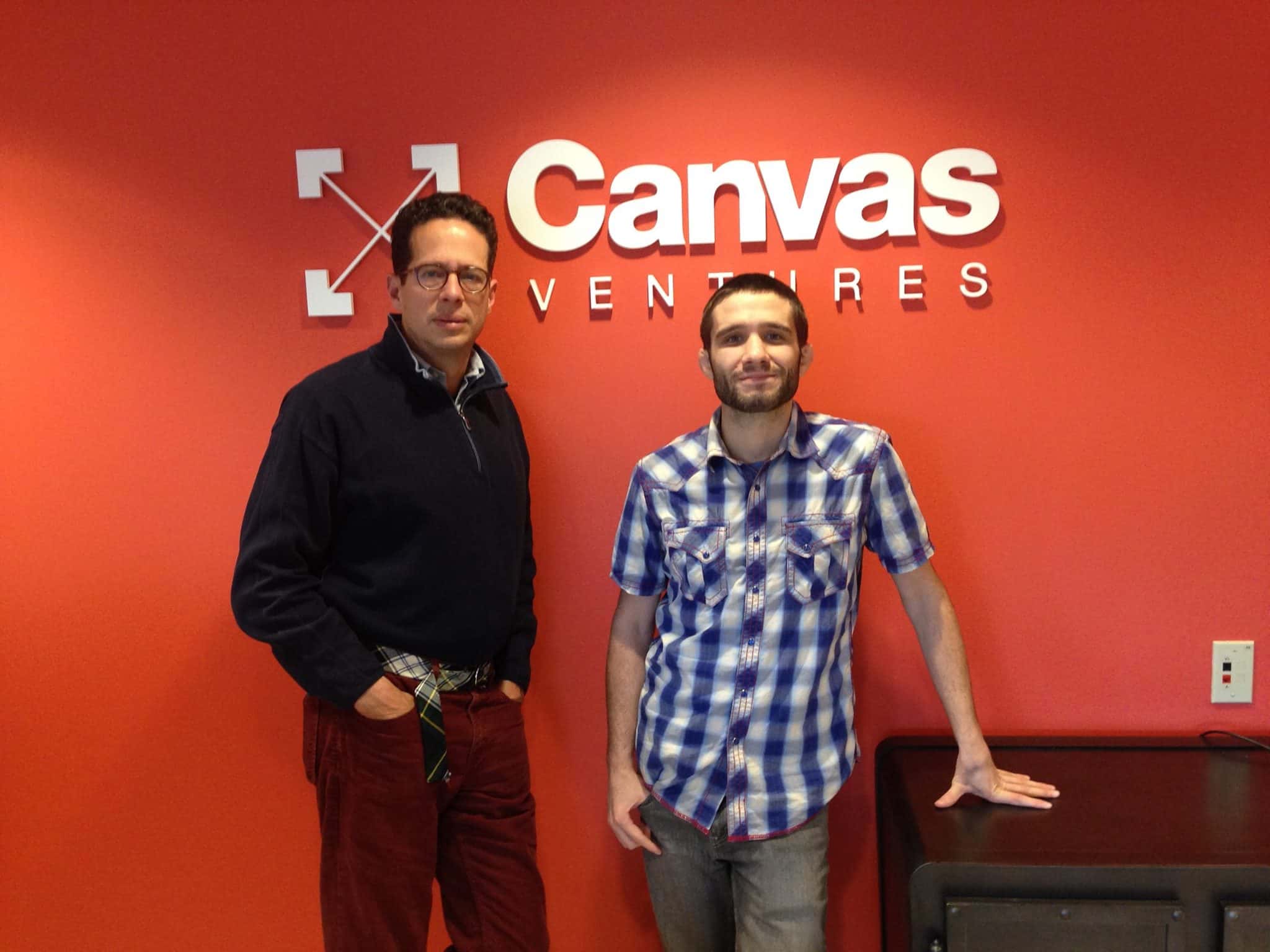
Interview with Ben Narasin at Canvas Ventures
(17:07) Red flag “stuff”…when you’re in with a company that’s got it’s value proposition leaning onto AI in some shape or form, are there any particulars where flags go up?
BN:…I think a lot of this is in many ways at this point immaterial to the business as a whole anyway, let’s say you’re a baker, do I really need to know how your oven works? I need to take a bite of your cake and see if I think it’s good, so what’s the end deliverable you’re going to give me?
…and these pieces that we’re talking about right now as we focus on ML and AI in some ways…not loses the point, but it’s a component piece; it may empower the new palatable thing you’re doing, but it on its own is not that, particularly as this stuff has gone open source…
(27:08) You talked about investors really wanting a defensible sort of “unfair advantage”…what is that farther concept than a “moat” (an analogy I brought up in terms of putting a vision in the head of investors); how do others go deeper than that?
BN: When I think of a moat, I think of it as a defensive structure that protects what we built from the outside world and that’s really important, but let’s continue on this analogy —what do you have for hot tar? What have you got for cannons loaded with spikes of steel and what do you have hidden in the basement that nobody knows about?
…if you’re a “Game of Thrones” fan, I’d argue that the moat’s interesting, but I’d rather have those three dragons, cause they are the power, and they are my absolute unfair competitive advantage; everybody needs a moat, I’d kind of expect it, but let’s go beyond that…
(Readers who want to know more about how to raise money for an AI startup may want to listen into our other “investor interviews” on AI in Industry.)


